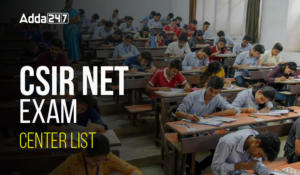LEARNING & ACQUISITION OF THE ENGLISH LANGUAGE
1. Concept of Learning:
Learning is a process of acquiring new skills or knowledge and improving the existing skills also. An individual undergoes a change in his/her knowledge and behaviour on account of learning. Everyone is different from one another in acquiring skills, which means everyone has a different rate or speed of learning. Certain factors such as environment, learner’s ability and motivation, teacher’s capabilities and ways of imparting knowledge-all impact a person’s learning experience.
The Critical Period: Hypothesis states that the first few years of life constitute the time during which language develops readily and after which language acquisition is much more difficult and ultimately less successful.
A. Types of Learning:
1. Motor Learning: Most of our activities in day to day life refer to motor activities e.g. walking, running, driving, climbing etc. All these activities involve muscular coordination.
2. Verbal Learning: This type of learning involves the language we speak, the communication methods we adopt e.g. signs, pictures, symbols, words, sounds etc. are the tools used in such activities.
3. Conceptual Learning: In this form of learning, we require higher-order mental processes like thinking, reasoning, and intelligence. With the use of these, the child learns different concepts.
B. Factors Affecting Learning:
(A) Factors related to the learner are:
• Learner’s motivation determines the intensity of learning
• Learner’s efficiency or mental capacity.
• Learner’s interest and aptitude towards the subject.
• Learner’s general health.
• Learner’s attention, readiness and willpower.
(B) Factors related to teachers are:
• Teacher’s command over the subject.
• Teacher’s way of communicating.
• Teacher’s personality and attitude towards learners.
• Teacher’s behaviour with students.
(C) Factors related to the environment, teaching materials and human resources are:
• Conducive environment to learning.
• Structure and size of classrooms.
• Availability of appropriate subject material to facilitate the learning process.
• Home environment of the learner.
Concept of Acquisition:
When language is learnt naturally and without any systematic practice, it is called acquisition. The term ‘learning and acquisition’ are complementary. Learners acquire language where it is used in the natural environment.
A. Language Acquisition
Language acquisition is the process by which humans acquire the capacity to perceive, produce and use words to understand and communicate.
• This capacity involves the picking up of diverse capacities including syntax, phonetics and an extensive vocabulary. This language might be vocal as with speech or manual as in sign.
• Language acquisition usually refers to first language acquisition, which studies infants’ acquisition of their native language, rather than second language acquisition, which deals with acquisition (in both children and adults) of additional languages.
• The capacity to acquire and use language is a key aspect that distinguishes humans from other organisms. While many forms of animal communication exist, they have a limited range of non-syntactically structured vocabulary tokens that lack cross-cultural variation between groups.
B. Concepts Associated with Acquisition and Learning:
1. Piaget’s Concept:
This concept states that learning starts with adaptation, assimilation and accommodation. He also said that classification was also important to learning the language.
• Certain words and sounds needed to be grouped together to better understand and use them in speech.
• Through assimilation, the learner takes the information and changes it to make it suitable for him.
2. Concept of Chomsky:
Chomsky states that every person possesses a Language Learning Device or (LLD) which is a hypothetical tool hard-wired into the brain.
• It helps children in rapidly learning and understanding a language.
• He also states that all children are born with an understanding of the rules of language; they simply need to acquire vocabulary.
3. Vygotsky’s Concept of Learning and Acquisition:
Vygotsky was of the opinion that social interaction played an important role in the development of cognition.
• According to him, ‘community’ also plays a central role in the process of making meaning and learning is a necessary and universal aspect of the process of developing culturally organized, specifically human psychological function.
• In other words, higher mental processes in the individual have their origin in social processes. He places more emphasis on the role of language in cognitive development.
4. Pavlov’s Concept of Learning:
Pavlov propounded a new theory of learning known as Classical Conditioning.
• According to him classical conditioning is a reflexive or automatic type of learning in which a stimulus acquires the capacity to evoke a response that was originally evoked by another stimulus.
• Classical conditioning’ is based on habit formation. Pavlov was of the view that humans learn due to some stimulus.


 WBSSC SLST Notification 2025 Out, Apply ...
WBSSC SLST Notification 2025 Out, Apply ...
 CSIR NET Exam Center List 2025, State Wi...
CSIR NET Exam Center List 2025, State Wi...
 Difference between ICAR NET vs CSIR NET ...
Difference between ICAR NET vs CSIR NET ...




